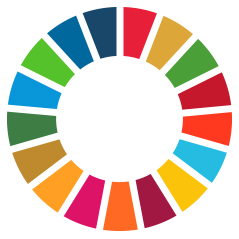Development
OECD and the Sustainable Development Goals: Delivering on universal goals and targets
|
The Sustainable The OECD supports the United Nations in ensuring the success of the 2030 Agenda for Sustainable Development by bringing together its existing knowledge, and its unique tools and experience, including:
In addition, OECD partnerships are creating synergies among private and public, domestic and international, and donor and developing country resources to provide countries with a strong support mechanism on which to build towards a better future. Don't miss: > Better Policies for 2030: An OECD Action Plan on the Sustainable Development Goals > 2021 Meeting of the OECD Council and Partners on the 2030 Agenda for Sustainable Development |
|
|
|
Improving policy coherence |
|
|
The multi-dimensional nature of the SDGs requires linkages across policy areas. The OECD addresses the multidimensional nature of diverse issues through a variety of horizontal projects and international initiatives. Its Policy Coherence for Sustainable Development Framework helps to identify synergies and trade-offs among economic, social and environmental policy areas. The SDGs provide a solid foundation for supporting resilient societies, dealing with humanitarian emergencies, and reducing risks of instability and shocks – even in the most difficult places. The OECD is helping countries to review their policies and approaches to working in challenging contexts to ensure they are fit for purpose. |
Learn more: |
| Promoting investment in sustainable development | |
The ambitious scope of the SDGs will require financing on an unprecedented scale. New resources must be tapped and commitments must be measured and monitored. Private investment is essential to deliver long-term sustainable development. The OECD Policy Framework for Investment is a comprehensive and systematic approach to improving investment conditions, an ideal tool for unlocking private resources. The OECD also works with developing countries on many fronts to support them in mobilising domestic resources. Official development assistance (ODA), which is tracked and monitored by the OECD, will remain at the core of many developing countries’ financing portfolios – especially the neediest countries. In addition, the new OECD-developed framework for total official support for sustainable development (TOSSD) captures a wide range of resources in support of sustainable development that complement ODA. |
Learn more:
|
| Supporting inclusive growth and well-being | |
|
The OECD Framework for Measuring Well-Being and Progress goes beyond GDP growth and is increasingly being used by developing countries to identify and assess development challenges. Other OECD projects, such as the Inclusive Growth initiative, the Multi-Dimensional Country Reviews, regional policy assessment programmes, and youth inclusion and social protection projects in developing countries also incorporate well-being. The OECD works in particular to deliver the SDGs for women and girls through a range of partnerships and programmes. It also provides solid and comprehensive policies for the integration of migrants and their children. |
Learn more: |
| Ensuring the planet's sustainability | |
|
OECD works with its members, partner countries and other stakeholders to ensure sound environmental management that supports the sustained achievement of economic development and prosperity, while delivering human security and resilience. For example, together with the World Water Council, the OECD has created a High Level Panel on Financing Infrastructure for a Water Secure World. The OECD tracks international climate finance and is sharing its expertise on these flows, and on the implications of different methodologies for estimating climate finance. |
Learn more: |
| Promoting partnerships | |
|
To implement the SDG goals and targets, governments all over the world, international and non-governmental organisations, the private sector and civil society will need to team up. Working together they can unlock the necessary financial resources, share technologies and create national capacities. The OECD provides a platform for dialogue and exchange. Together with UNDP it supports the Global Partnership for Effective Development Co-operation, which brings all stakeholders to the table to discuss development issues on an equal footing. |
Learn more: |
| Strengthening data availability and capacity | |
|
The OECD is helping countries to track progress in areas such as trust, health inequalities, green growth, income and consumption inequality, and job quality. It supports countries in developing and using environmental and green growth indicators and in achieving environment-economy integration over time. The OECD also supports developing countries in building their own statistical capacities and systems through the PARIS21 partnership. |
Learn more: |
| Facilitating follow up and review | |
|
OECD country assessments, peer reviews and peer learning mechanisms across a range of policy fields – economic, investment, environmental, energy, migration, education, development co-operation and more – play a key role in sharing learning and knowledge, improving policies and practices, and building trust and mutual respect among partners. The OECD is adapting its range of assessment and learning mechanisms - including the Programme for International Student Assessment, or PISA - to the new 2030 Agenda. |
Learn more: |

Related Documents
- Summary document: The Sustainable Development Goals: An overview of relevant OECD analysis, tools and approaches
- Development Co-operation Directorate
- OECD Action Plan on the Sustainable Development Goals
- OECD Expertise Relevant to the Sustainable Development Goals
- Measuring Distance to the SDG Targets
 Development Goals (SDGs) are broad and ambitious, calling on all countries – be they upper, middle or low income – to make tangible improvements to the lives of their citizens. The goals encompass social, environmental and economic aspects.
Development Goals (SDGs) are broad and ambitious, calling on all countries – be they upper, middle or low income – to make tangible improvements to the lives of their citizens. The goals encompass social, environmental and economic aspects.